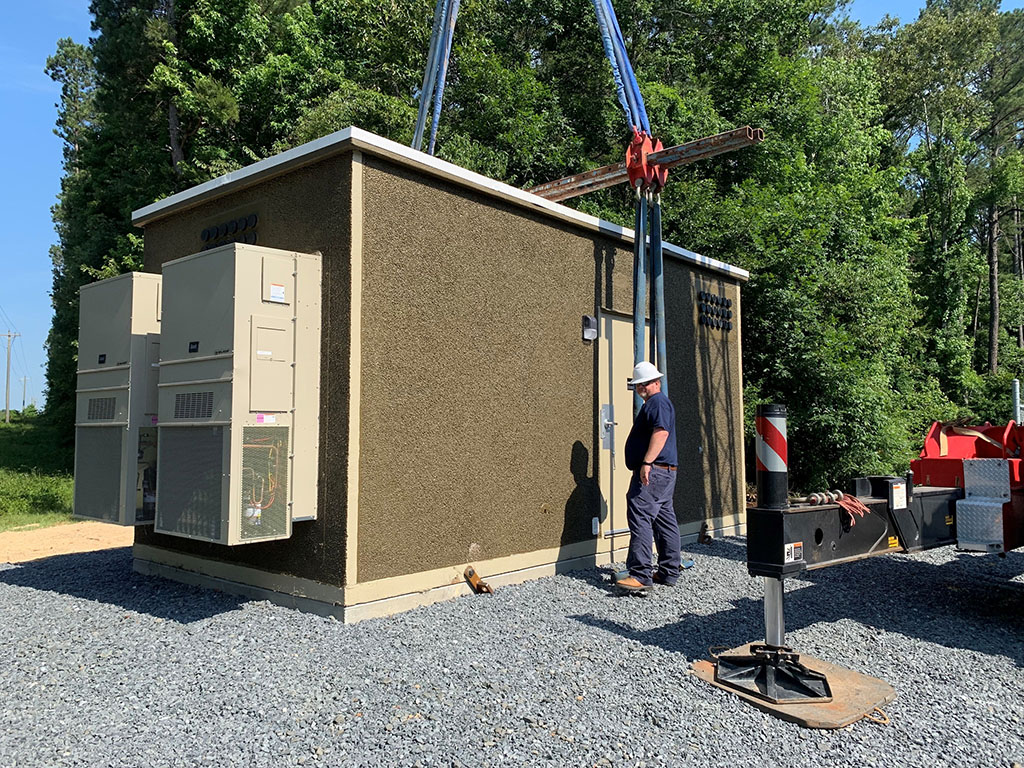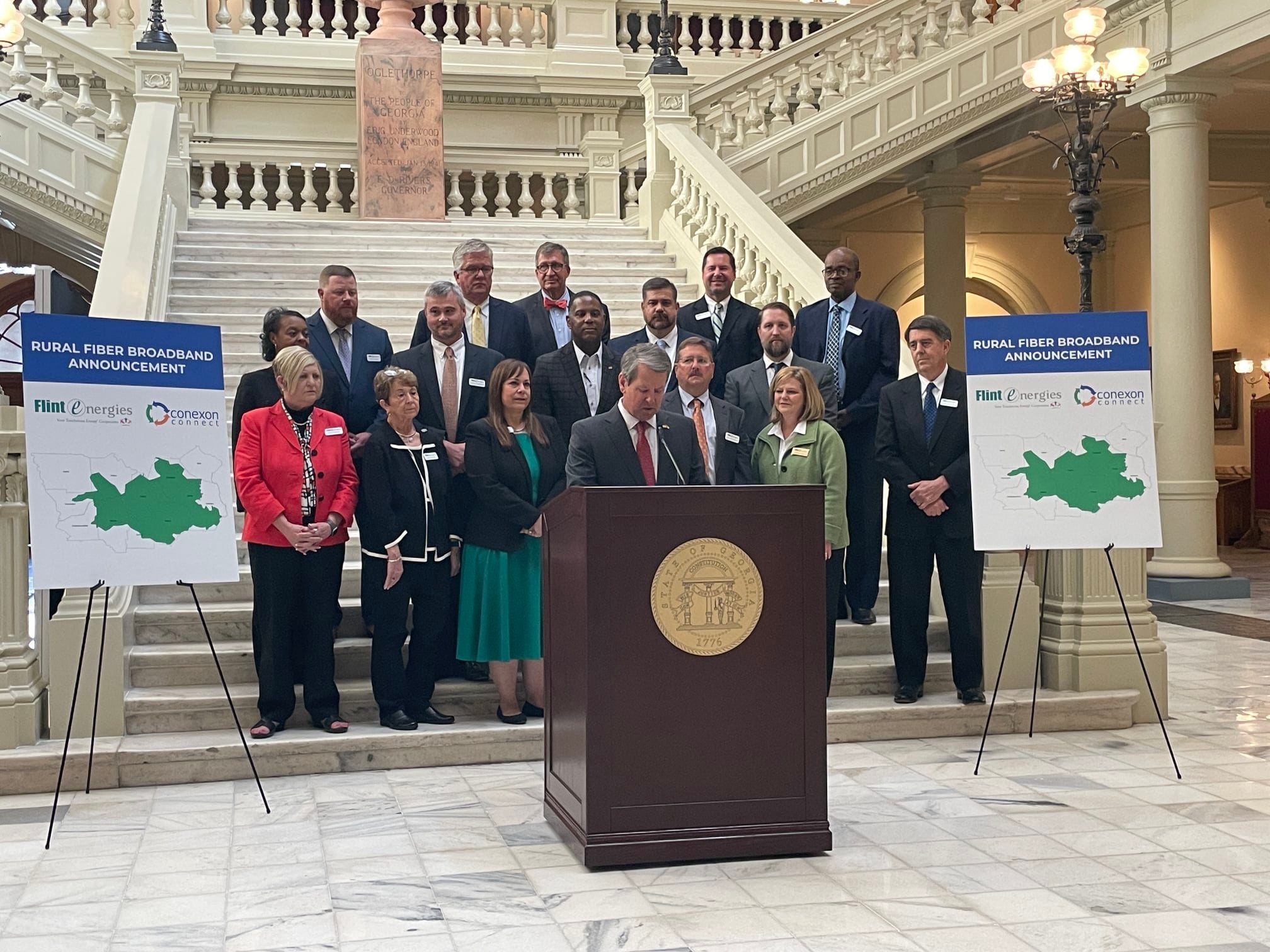Co-op Members
31,000
Total Miles of Fiber
3,000
Project Timeline
3 years
Originally published: August, 2022
The demographics of Flint Energies’ service territory in northwest middle Georgia make it easy to understand the challenges posed by lack of connectivity in the region: The sprawling EMC includes more than 7,000 miles of distribution lines across 17 counties bookended by two military bases, with big agriculture comprising the vast majority of the rural footprint. Electric service is equally far-reaching: Flint serves 93,500 meters, including one of the largest dairy producers in Georgia.
Given the EMC’s size and rural makeup, access to reliable broadband is not just a crucial need for members but also a key step to community and economic vitality. The reality for Flint Energies, however, is that most of the territory has limited or no broadband options available.

“Flint isn’t in the broadband business – we are in the fiber infrastructure business. We knew that taking on this project would require a trusted, proven broadband partner to be successful.”


As Flint celebrates 85 years of dedication to serving its communities with electricity access, its leadership recognized connectivity as the next essential service to bring to members. Although Flint is not providing high-speed internet to its members directly, the co-op is helping bring it within reach as it will construct the fiber network for its smart grid communications needs and then lease extra fiber strands to Conexon Connect.
“There was a lack of connectivity within our communities. Most of our members were either underserved or completely unserved when it came to these essential services,” President and CEO Jeremy Nelms said. “We realized our members are missing out on educational opportunities, healthcare resources and global e-commerce.” Fast, reliable internet will allow Flint’s membership to access these opportunities while boosting local businesses and allowing the community to stay connected.

The EMC announced its partnership with Conexon Connect in March 2022. Together, Flint Energies and Connect will launch and deploy a 3,000-mile fiber-to-the-home (FTTH) network that will deliver fiber broadband to 31,000 underserved and unserved homes and businesses in Crawford, south Houston, Macon, Marion, Muscogee, Peach, Schley, Talbot, and Taylor counties.
“Flint isn’t in the broadband business – we are in the fiber infrastructure business,” Nelms said. “We knew that taking on this project would require a trusted, proven broadband partner to be successful.”
While Flint Energies with Conexon will support the construction of a fiber communications network across a large portion of the EMC’s service territory, Conexon’s internet service provider (ISP) subsidiary, Conexon Connect, will utilize the excess fiber on this communications network to offer world-class fiber broadband (high-speed internet) service to underserved and unserved communities within the portions of Flint’s service territory that the new fiber network touches.
Building a FTTH network is a large-scale project, spanning multiple years and requiring an abundance of resources and manpower to complete. Flint explored several partners to assist in the project. “We ultimately chose to partner with Conexon Connect. Its roots are established in electric co-ops and understands cooperatives operate differently,” Nelms said. “Conexon shares our philosophy in valuing each member and community we serve, so we knew it would be the right choice for our project.”
The $90 million project includes American Rescue Plan grant funds of $25 million, $7.5 million in FCC Rural Digital Opportunity Funds, and investments by Flint Energies and Conexon Connect. Construction has already started, and the network is estimated to be completed in 2026.
The cooperative has hit several major milestones in the FTTH project, completing the make-ready engineering analysis and starting the fiber installation process. Nelms shares the cooperative’s goal to have its first member connected by the end of October 2022. Even with ongoing nationwide supply chain issues, Nelms applauded Flint Energies’ supply chain group and Conexon for keeping momentum on the project to meet the projected date to connect its first subscriber.
Nelms said the project will improve the quality of life for the co-op’s members and work to bridge the digital divide for its communities in the nine counties the network will span. “With lack of connectivity, you see population and economic decline. We want to level out the playing field in our communities to show that just because we are rural does not mean we are disconnected from the world. This fiber project will ensure just that.”